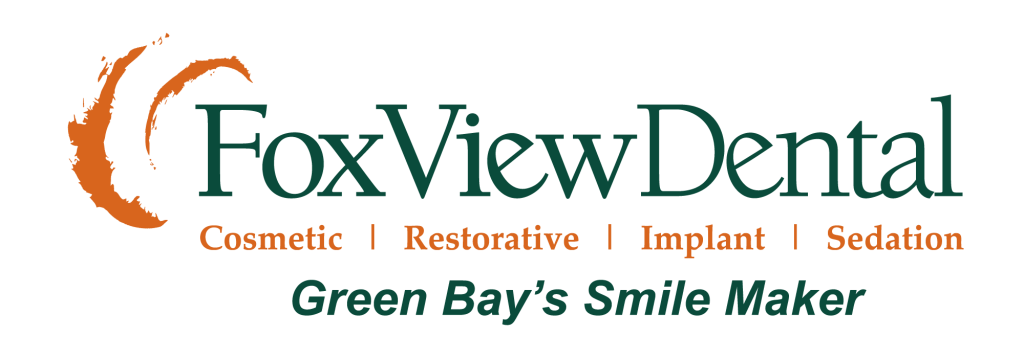Restore Your Smile Today at Fox View Dental, Near Green Bay!
If you’re missing one or more teeth and wish to restore your overall oral health, a dental bridge might be the solution you’re looking for. Not only will dental bridges enhance your appearance and immediately boost your confidence, but they’ll also restore your ability to chew and speak properly.
With a dental bridge, you can confidently show off your new and improved smile in no time! Dr. Yenchesky, our De Pere, WI, dentist, is here to guide you through the process and ensure your comfort every step of the way. Call (920) 336-4201 to schedule a consultation and learn more about dental bridges. Dr. Chad Yenchesky welcomes patients from Green Bay, Ashwaubenon, and Bellevue to Fox View Dental.
Advanced Technology Meets Personal Touch at Fox View Dental
Fox View Dental represents the perfect marriage of cutting-edge digital dentistry and old-fashioned warmth and personal attention that’s increasingly rare in today’s healthcare landscape. We’ve invested in the latest advanced technology to ensure our patients receive the most effective, efficient, and comfortable treatments available, but what truly sets us apart is our unwavering commitment to maintaining the personal touch that makes every patient feel special.
Our long tradition of excellence isn’t just about clinical outcomes—it’s about creating an environment where state-of-the-art equipment serves as the foundation for delivering outstanding care that’s enhanced by genuine human connection. This unique combination means that while you’re receiving some of the most advanced dental care available in Green Bay and Northeast Wisconsin, you’re also experiencing the kind of personal attention and warmth that makes you feel like you’re the only patient who matters. It’s this perfect balance of innovation and intimacy that creates an unparalleled dental experience where high-tech meets high-touch in the most meaningful way.
What Are Dental Bridges?
A dental bridge is a prosthetic device used to replace one or more missing teeth. The supporting teeth on either side of the gap, known as ‘abutment teeth’, play a crucial role in the stability of the bridge. It’s typically made up of two or more crowns that are placed on the abutment teeth on either side of the gap, and a false tooth in between. The false teeth, or ‘artificial teeth’, are called pontics, and they’re designed to aesthetically match and function like natural teeth, made from various materials such as porcelain, gold, or alloys.
Depending on the type of bridge you receive, your bridge might consist of one or more pontics and abutments. There are various types of dental bridges, including traditional, cantilever, and Maryland bridges, each with unique characteristics.
Different Types of Dental Bridges
There are various types of dental bridges, such as:
- Traditional Dental Bridge: This is the most common type, consisting of one or more artificial teeth anchored to adjacent teeth using dental crowns.
- Cantilever Dental Bridge: This type is used when there’s only one adjacent tooth available to support the artificial tooth.
- Maryland Dental Bridge: Made of a metal or porcelain framework bonded to the back of supporting teeth, Maryland bridges are typically used to replace front teeth.
- Implant-Supported Bridge: This type is supported by a dental implant instead of natural teeth. Implant-supported bridges are more durable and longer-lasting but also more costly.
Benefits of Dental Bridges
When you choose to receive dental bridges, you can enjoy benefits like:
- Natural Appearance: Dental bridges will improve the appearance of your smile. By filling in the gap in your teeth, you can smile and laugh with confidence, without worrying about what others might think.
- Speech Improvement: Missing teeth can cause problems with your speech, making it difficult to pronounce certain words or sounds. By filling in the gap with a dental bridge, you can improve your speech and communicate more effectively.
- Improved bite & chewing ability: When you’re missing teeth, it can be difficult to chew your food properly, which can cause digestive problems. A dental bridge can help improve your ability to chew, making it easier to eat the foods you love.
- Prevent your remaining teeth from shifting: When you’re missing teeth, the surrounding teeth can start to shift into the gap, often causing problems with your bite and alignment. Dental bridges help prevent this from happening and keep your remaining teeth in their proper place to avoid any future dental complications.
If you’re ready to improve the appearance of your smile, schedule a consultation with Dr. Yenchesky today by calling (920) 336-4201 to see if a dental bridge is right for you.
Candidacy for Dental Bridges
Dental bridges are ideal for people missing up to four adjacent teeth. However, an ideal candidate should also have:
- Location of Missing Teeth: A dental bridge requires healthy teeth on either side of the gap to serve as abutments (support). If there aren’t stable teeth on either side, a bridge may not be an option.
- The health of Adjacent Teeth: The supporting teeth need to be strong enough to support the bridge. This means they should be free of decay and gum disease and have good bone support. If the adjacent teeth are compromised, they might not be suitable as abutments or they might require treatment first.
- Number of Missing Teeth: Traditional bridges are generally suitable for replacing one to three adjacent missing teeth. If more teeth are missing or they’re spread out, other options like partial dentures or dental implants might be more appropriate.
- Oral Hygiene: Patients should have good oral hygiene habits or be willing to improve them. A bridge requires meticulous cleaning around and under the false tooth/teeth.
- Gum Health: Patients with untreated gum disease might not be good candidates for a dental bridge until the gum issues are addressed.
- Occlusion (Bite) Considerations: The way the upper and lower teeth come together (the bite) can influence the success of a bridge. If there are significant bite issues, they might need to be addressed either before or in conjunction with a bridge placement.
- Bone Loss: If a tooth has been missing for a long time, there can be significant bone loss in that area. While this doesn’t necessarily preclude someone from getting a bridge, it might make other options like implants more challenging without additional procedures like bone grafting.
If a dental bridge isn’t right for you, our De Pere dentist may recommend other alternatives to avoid complications, such as dental implants or dentures.
The Dental Bridge Procedure
Consultation
The dental bridge process can typically be completed in two appointments in a relatively painless procedure. The first step is to schedule a consultation at our De Pere dental office with Dr. Yenchesky. During the consultation, he’ll examine your teeth and gums to determine if a dental bridge is the best option for you.
Preparation
If a dental bridge is the right choice, the next step is to prepare the teeth that will support the bridge. This involves removing a small amount of enamel from your teeth so the bridge can fit properly.
Patients often worry about the procedure being painful, but rest assured, local anesthetic is used to numb the gums so the process is as comfortable as possible. After the teeth have been prepared, Dr. Yenchesky will take an impression of your teeth that will be used to create the bridge.
Fabrication and Placement
While the bridge is being made, a temporary bridge will be placed to protect the prepared teeth and prevent any shifting. Once the permanent bridge is ready, the temporary bridge will be removed and the permanent bridge will be put in its place.
If you’re considering a dental bridge, be sure to schedule a consultation at our De Pere, WI, dental office to discuss your options. With the right dental bridge care and maintenance, your new smile can last for years.




